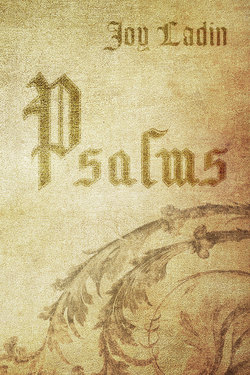Читать книгу Psalms - Joy Ladin - Страница 7
На сайте Литреса книга снята с продажи.
Author’s Note
ОглавлениеI’ve always envied the psalms of intimacy and anguish, in which the bitter flux of human existence is inextricably interwoven with God’s loving, raging, transformational presence. In the lightning-shot space where Divine meets human, time shatters, splits, leaps like a river, and so does the soul of the speaker, now hunting God, now hunted, now languishing in despair, now reclining in quiet triumph against the pillars of Heaven. As I languished and triumphed my way through despairs of my own, I realized that I wanted, needed, to create a corollary to that psalm space, but a space narrowed, as my life had narrowed, to a single room in which God and I had no choice but to face each other. Angry, hopeless, desperately lonely, I thought of these psalms as a trap for the God who seemed to have left me behind, but as soon as I started to write them, I found God waiting for me inside.
God, it seems, had been waiting a long time.
Biblical Hebrew has no upper- or lower-case, no “thee” or “thou” or other dignifying signifiers to elevate the “you” of God above the human “you.” Because ours is a culture that assumes God’s distance as reflexively as the Hebrew psalmists assumed God’s presence, I have broken with the English and American tradition of capitalizing the Divine “You” and followed the Hebrew convention. Since I capitalize the human “I,” this reverses the usual typographical relationship between Divine and human. There are similar relational somersaults throughout the poems. In this too I’m following the Hebrew psalms, in which the tempestuous relationship between soul and God is figured as a whirlwind of pain and love.
Joy Ladin
Amherst, Massachusetts
December 2009
